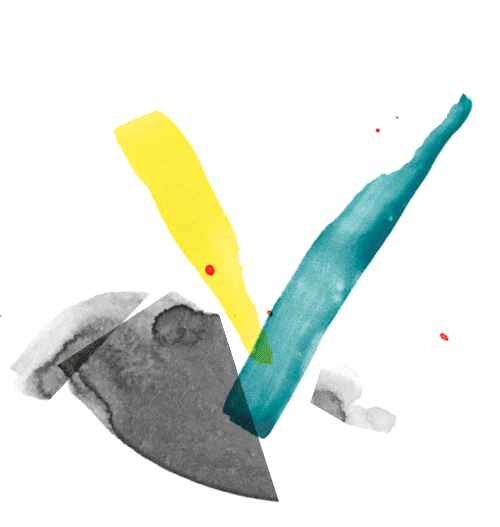

Sign up for our newsletters. You can change the settings or unsubscribe at any time.
Thank you for your subscription. We have sent you an e-mail with a confirmation link.


exp. 1
exp. 2
exp. 3

In 1933, Flávio de Carvalho founded the Teatro da Experiência [Theater of Experience], which took place at the Clube dos Artistas Modernos (CAM) [Club of Modern Artists] in São Paulo. The main idea behind the initiative was to experiment with the psychology of entertainment. De Carvalho’s play O Bailado do Deus Morto presented the story of the killing of a “hairy God,” betrayed by an “inferior woman.” The work was performed by a predominantly Black cast of non-actors dressed in white nightgowns and wearing aluminum masks. The heretical content of the piece plus the, at the time, unorthodox presence of Black bodies on stage was considered so scandalous that it led to the space being shut down by the police.
A scene of O Bailado do Deus Morto, November 1933
B/w photograph, exhibition print
Source: Fundo Flávio de Carvalho/CEDAE-UNICAMP, Campinas
Photo: Mathias Völzke
Struggle as Culture: The Museum of Solidarity, 1971–73
María Berríos
Essay
IV: How Fear Can Dismantle a Body. Vis-a-Vis with two of four curators of the 11th Berlin Biennale
María Berríos, Lisette Lagnado
Conversation
Invitation to the Species: Cecilia Vicuña
Tamaas / Cecilia Vicuña
Podcast
Touching Feeling. Affect, Pedagogy, Performativity
Eve Kosofsky Sedgwick
Monograph
Freiheit für Chile!
Anonymous
Photo album
Feminist Health Care Research Group
Web archive
By using this website you agree to the use of cookies in accordance with our data privacy policy.

In 1933, Flávio de Carvalho founded the Teatro da Experiência [Theater of Experience], which took place at the Clube dos Artistas Modernos (CAM) [Club of Modern Artists] in São Paulo. The main idea behind the initiative was to experiment with the psychology of entertainment. De Carvalho’s play O Bailado do Deus Morto presented the story of the killing of a “hairy God,” betrayed by an “inferior woman.” The work was performed by a predominantly Black cast of non-actors dressed in white nightgowns and wearing aluminum masks. The heretical content of the piece plus the, at the time, unorthodox presence of Black bodies on stage was considered so scandalous that it led to the space being shut down by the police.
A scene of O Bailado do Deus Morto, November 1933
B/w photograph, exhibition print
Source: Fundo Flávio de Carvalho/CEDAE-UNICAMP, Campinas
Photo: Mathias Völzke
Museo de la Solidaridad Salvador Allende (MSSA) in Berlin
A conversation between María Berríos and Melanie Roumiguière
Conversation
A Moment of True Decolonization / Episode #6: Sinthujan Varatharajah. Constructing the Tamil Eelam State
The Funambulist / Sinthujan Varatharajah
Podcast
St Sara Kali George
Delaine Le Bas
Soundscape
Queer Ancient Ways: A Decolonial Exploration
Zairong Xiang
Monograph
Invitation to the Species: Cecilia Vicuña
Tamaas / Cecilia Vicuña
Podcast
THE MOBILIZATION
Nicolás Cuello
Text
By using this website you agree to the use of cookies in accordance with our data privacy policy.

In 1933, Flávio de Carvalho founded the Teatro da Experiência [Theater of Experience], which took place at the Clube dos Artistas Modernos (CAM) [Club of Modern Artists] in São Paulo. The main idea behind the initiative was to experiment with the psychology of entertainment. De Carvalho’s play O Bailado do Deus Morto presented the story of the killing of a “hairy God,” betrayed by an “inferior woman.” The work was performed by a predominantly Black cast of non-actors dressed in white nightgowns and wearing aluminum masks. The heretical content of the piece plus the, at the time, unorthodox presence of Black bodies on stage was considered so scandalous that it led to the space being shut down by the police.
A scene of O Bailado do Deus Morto, November 1933
B/w photograph, exhibition print
Source: Fundo Flávio de Carvalho/CEDAE-UNICAMP, Campinas
Photo: Mathias Völzke
THE MOBILIZATION
Nicolás Cuello
Text
Solidarity and Storytelling. Rumors against Enclosure
María Berríos
Essay
Género y colonialidad en busca de claves de lectura y de un vocabulario estratégico descolonial
Rita Segato
Essay
Touching Feeling. Affect, Pedagogy, Performativity
Eve Kosofsky Sedgwick
Monograph
Umbilical Cord Amulet
McCord Museum
Object
A Moment of True Decolonization / Episode #6: Sinthujan Varatharajah. Constructing the Tamil Eelam State
The Funambulist / Sinthujan Varatharajah
Podcast
By using this website you agree to the use of cookies in accordance with our data privacy policy.

In 1933, Flávio de Carvalho founded the Teatro da Experiência [Theater of Experience], which took place at the Clube dos Artistas Modernos (CAM) [Club of Modern Artists] in São Paulo. The main idea behind the initiative was to experiment with the psychology of entertainment. De Carvalho’s play O Bailado do Deus Morto presented the story of the killing of a “hairy God,” betrayed by an “inferior woman.” The work was performed by a predominantly Black cast of non-actors dressed in white nightgowns and wearing aluminum masks. The heretical content of the piece plus the, at the time, unorthodox presence of Black bodies on stage was considered so scandalous that it led to the space being shut down by the police.
A scene of O Bailado do Deus Morto, November 1933
B/w photograph, exhibition print
Source: Fundo Flávio de Carvalho/CEDAE-UNICAMP, Campinas
Photo: Mathias Völzke
Being in Crisis together – Einander in Krisen begegnen
Feminist Health Care Research Group (Inga Zimprich/Julia Bonn)
Online workshop
El primer nueva corónica y buen gobierno
Felipe Guamán Poma de Ayala
Chronicle
THE MOBILIZATION
Nicolás Cuello
Text
Touching Feeling. Affect, Pedagogy, Performativity
Eve Kosofsky Sedgwick
Monograph
A Moment of True Decolonization / Episode #6: Sinthujan Varatharajah. Constructing the Tamil Eelam State
The Funambulist / Sinthujan Varatharajah
Podcast
Museo de la Solidaridad Salvador Allende (MSSA) in Berlin
A conversation between María Berríos and Melanie Roumiguière
Conversation
By using this website you agree to the use of cookies in accordance with our data privacy policy.
By using this website you agree to the use of cookies in accordance with our data privacy policy.




